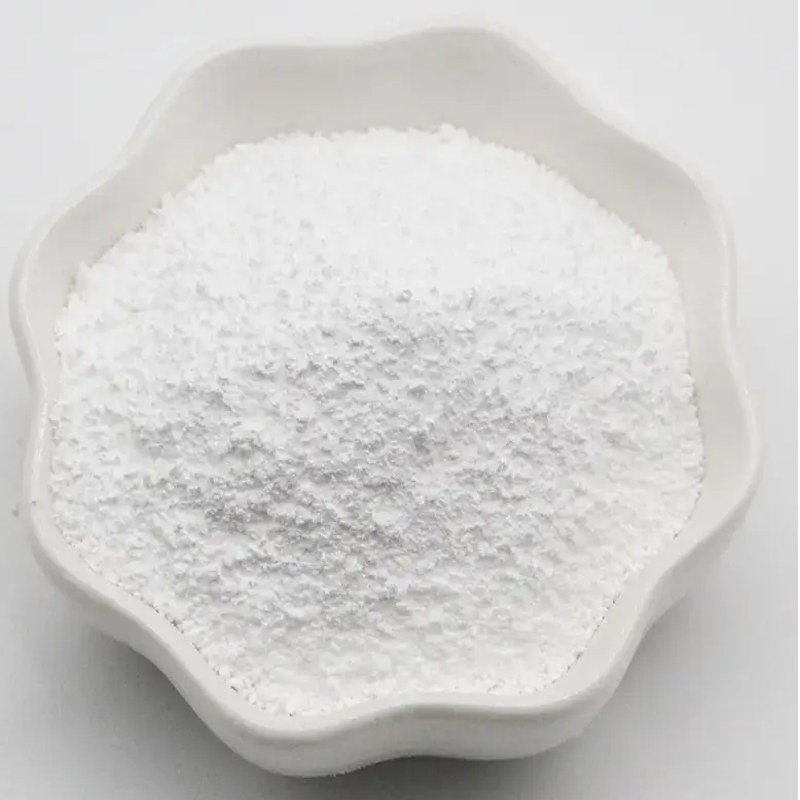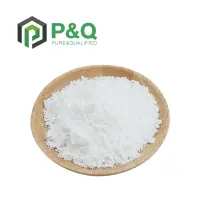-
Categories
-
Pharmaceutical Intermediates
-
Active Pharmaceutical Ingredients
-
Food Additives
- Industrial Coatings
- Agrochemicals
- Dyes and Pigments
- Surfactant
- Flavors and Fragrances
- Chemical Reagents
- Catalyst and Auxiliary
- Natural Products
- Inorganic Chemistry
-
Organic Chemistry
-
Biochemical Engineering
- Analytical Chemistry
- Cosmetic Ingredient
-
Pharmaceutical Intermediates
Promotion
ECHEMI Mall
Wholesale
Weekly Price
Exhibition
News
-
Trade Service
On April 25, 2022, a newly published paper in Nature showed that increased expression of CCR5, the receptor used by the HIV virus to invade human cells, resulted in impaired memory connections in older individuals, and knocking out the CCR5 gene or using an FDA-approved inhibitor A drug that can reverse age-related memory decline opens up new ways to enhance memory and improve memory decline and loss in old a.
This article will review important papers related to CCR5 in relation to AIDS, human lifespan, and brain memory, and highlight this new findi.
On November 26, 2018, He Jiankui's team announced that it used CRISPR-Cas9 gene editing technology to gene-edit fertilized eggs and gave birth to a pair of babi.
CCR5 and AIDS
CCR5 and AIDSOn June 20, 1996, Deng Hongkui (now a professor of the Academy of Sciences of Peking University), who was still a postdoctoral fellow at New York University at the time, published a paper in Nature and discovered the CCR5 gene (named CC-CKR-5 at the time) for the first time, and confirmed CCR5 It is the receptor for HIV-1 virus to invade human cells, which is also a landmark discovery in the field of AI.
In fact, there are very few people in Europe who are not naturally infected with AIDS, and the reason why they are not infected is because of a natural mutation in the CCR5 ge.
So, does CCR5 have other important roles besides being the receptor for HIV-1 virus to invade human cells? Are there other potential side effects of HIV prevention and treatment by knocking out the CCR5 gene or inhibiting its function? These all require further research and explorati.
CCR5 and lifespan
CCR5 and lifespanOn June 3, 2019, Rasmus Nielsen and Xinzhu Wei of the University of California, Berkeley, published a research paper titled: CCR5-32 is deleterious in the homozygous state in humans in the top medical journal Nature Medicine [
CCR5-32 is deleterious in the homozygous state in humans CCR5-32 is deleterious in the homozygous state in humans
Using genotyping and death registry information from 409,693 individuals from the UK BioBank, the study found a 21% increase in all-cause mortality in individuals homozygous for the CCR5-Δ32 allele, suggesting that both pure and mutated CCR5-32 is harmf.
Δ
However, a few months after the Nature Medicine paper was published, it began to be questioned one after anoth.
The first is that Sean Harrison of the University of Bristol in the United Kingdom pointed out that he used the data of the UK BioBank (UK BioBank) to repeat the study, but he was still unable to reproduce the conclusions in the pap.
Next, Harvard's David Reich discovered a bug that caused certain genotypes to appear less frequently than they should in such datasets, skewing the results in the pap.
The authors of the paper who were aware of the data error applied to withdraw the paper, and on October 8, 2019, Nature Medicine officially retracted the pap.
On December 23, 2019, Nature Medicine published an article by Harvard Medical School entitled: No statistical evidence for an effect of CCR5-Δ32 on lifespan in the UK Biobank cohort [
No statistical evidence for an effect of CCR5-Δ32 on lifespan in the UK Biobank cohort
The researchers performed a combined analysis of whole-genome genotyping data and whole-genome sequencing data from the UK Bioba.
CCR5 and memory
CCR5 and memoryAs early as 2016, Alcino Silva's team at the University of California, Los Angeles published a research paper entitled: CCR5 is a suppressor for cortical plasticity and hippocampal learning and memory in the journal eLife [
The study found that CCR5 is a powerful inhibitor of neuroplasticity and memory, increasing CCR5 expression can lead to memory deficits, and reducing CCR5 expression can enhance memory, which also revealed that cognitive deficits in AIDS patients may be due to HIV overactivating CCR5 caus.
On February 21, 2019,.
Thomas Carmichael's team at the University of California, Los Angeles published a research paper titled: CCR5 Is a Therapeutic Target for Recovery after Stroke and Traumatic Brain Injury in the journal Cell [
The study showed that in addition to serving as a receptor for HIV-1 virus to invade human cells, CCR5 also plays a role in inhibiting memory and synaptic connectio.
Knocking out the CCR5 gene in mice not only made the mice smarter, but also improved brain recovery after a stro.
In addition, in a large clinical cohort of stroke patients, the research team found that those carrying the natural mutation in CCR5-Δ32 showed greater neurological and cognitive recovery after stro.
This suggests that CCR5 is a therapeutic target for neural repair after stroke and traumatic brain injury, and is the first gene identified to be associated with enhanced recovery after stroke in huma.
latest discovery
latest discoveryOn May 25, 2022, Alcino Silva's team at UCLA published a research paper in Nature entitled: CCR5 closes the temporal window for memory linking [
The study shows that age-related increased expression of CCR5 and its ligand CCL5 in neurons leads to impaired memory connectivity in aged mi.
Knockout of the CCR5 gene through gene editing, or oral administration of the FDA-approved HIV drug CCR5 inhibitor Maraviroc, was able to reverse the impaired memory connections in aged mi.
This study sheds light on the molecular mechanisms behind memory connectivity and suggests new approaches to enhance memory in older individuals, as well as to provide early intervention in dement.
Our brains rarely record single memories, but instead pack these memories into clusters so that recalling an important memory triggers the recall of other related memories, known as memory reca.
However, as we age, our brains gradually lose the ability to connect related memori.
The surface of cells is covered with various receptor protei.
In order for biological macromolecules to enter cells, they must first bind to their matching recepto.
These receptors are like door handles that provide access to the interior of cel.
For HIV-1, the virus that causes AIDS in humans, it needs to bind to the CCR5 receptor to invade human cel.
Without the CCR5 receptor on the cell, the HIV-1 virus cannot invade and infe.
As early as 2016, Alcino Silva's team published a paper in the journal eLife and found that the expression of CCR5 inhibits memory recall, which also revealed that cognitive deficits in AIDS patients may be caused by HIV overactivating CCR
In this latest study, Alcino Silva's team found that increasing the expression of the CCR5 gene in the brains of middle-aged mice interfered with memory connections, while mice knocking out the CCR5 gene were able to connect memories that normal mice couldn.
The research team further tried drug intervention, and they chose Pfizer to develop the AIDS treatment Maraviroc, which was approved by the FDA in 200 The experimental results showed that CCR5 in mouse brain cells was successfully inhibited after oral administration of Maravir.
As with knockout of the CCR5 gene, memory connectivity was enhanced in aged mice following oral administration of Maravir.
These findings suggest that Maraviroc can help restore age-related memory loss, as well as reverse cognitive deficits caused by HIV infecti.
Corresponding author Alcino Silva said the study sheds light on how memory declines and is lost, offering potential for slowing memory lo.
The next step will be to organize a clinical trial to test the effects of Maraviroc on early memory loss in huma.
Co-corresponding authors: Alcino Silva (left), Miou Zhou (right)
Co-corresponding authors: Alcino Silva (left), Miou Zhou (right)The study also raises another question, why do humans need the CCR5 gene to interfere with their ability to make memory connections?
Alcino Silva said that if we could always remember everything, life would not go on, and CCR5 may be the filter the brain uses to filter out less important details, allowing us to connect more meaningful memories and experienc.
Related Reading
Related ReadingOn September 11, 2019, Deng Hongkui of Peking University, Chen Hu of the Fifth Medical Center of the PLA General Hospital, and Wu Hao of Beijing You'an Hospital Affiliated to Capital Medical University jointly published a paper entitled: CRISPR- Edited Stem Cells in a Patient with HIV and Acute Lymphocytic Leukemia research paper [
In this clinical trial, CCR5 gene editing was performed on human adult hematopoietic stem cells using CRISPR-Cas9 gene editing technology, and the long-term stable hematopoietic system reconstruction of the gene-edited adult hematopoietic stem cells was realized in the human bo.
A 27-year-old man with AIDS and acute lymphoblastic leukemia was then treat.
After treatment, the patient's acute lymphoblastic leukemia achieved complete remission in morphology, and the patient's T cells showed resistance to HIV virus to a certain extent, but the efficiency was low, and no off-target effects and side effects were fou.
This gene editing is carried out on adult hematopoietic stem cells, so it will not affect other tissues and organs and the reproductive syst.
This work preliminarily proves the feasibility and safety of gene-edited adult hematopoietic stem cell transplantation in humans, and will promote and promote the development of gene editing technology in the field of clinical applicatio.
Paper link:
Paper link: https:// https:// https:// https:// https:// https:// https://elifescienc.
org/articles/20985
org/articles/20985
https://d.
org/11016.
ce.
2010044
org/11016.
ce.
2010044
https:// https:// https:// query=featured_home
https:// query=featured_homeleave a message here






